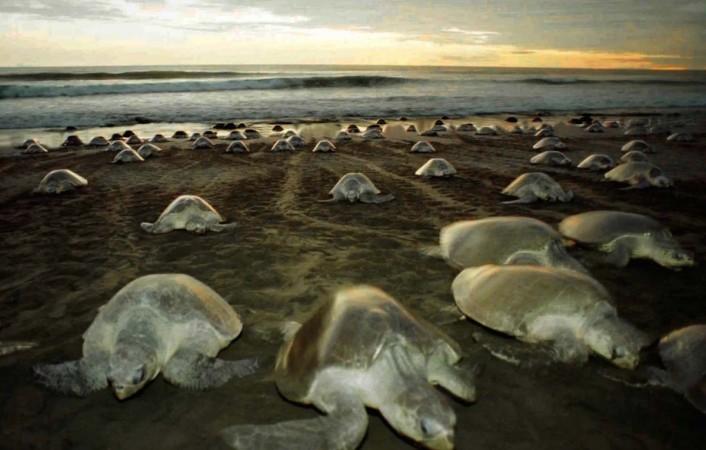
Indian Strategic Forces Command Monday successfully test-fired a nuclear-capable surface-to-surface missile, Agni-I, with a striking range of 700 kms, from Abdul Kalam Island (formerly known as Wheeler Island). However, it has been heavily criticised by environmentalists, turtle researchers and forest officials, as the test was conducted near the nesting site of the Olive Ridley sea turtles at Gahirmatha, Odisha, the New Indian Express reported.
The International Union for Conservation of Nature (IUCN) Red List has classified the Olive Ridley sea turtles, which gets its name from the olive-coloured heart-shaped carapace on their shell, as "vulnerable." And, the Agni-I launch was criticised due to its timing, considering it is the mass-nesting season of Olive Ridley sea turtles.
"Two years back, the forest officials had urged the officials of Defence Research and Development Organisation (DRDO) not to test any missile from the island from Nov. 1 to May 31 but the DRDO authorities ignored the request," Dr SS Srivastava, Principal Chief Conservator of Forests (PCCF), was cited as saying by the New Indian Express.
Sudhanshu Parida, environmentalist and secretary of district unit of People for Animals, has said that such testing raises questions about the vulnerable Olive Ridley sea turtles turning up at Gahirmatha and also on the future of such mass nesting.
He further reasoned that the turtles get distracted by bright lights and sound, and such events might affect their movement in the sea leading to disorientation of the hatchlings and adult females and this could be fatal for them.
World Wildlife Federation (WWF) India notes in its official website that the female Olive Ridley sea turtles return to the same beach from where they first hatched to lay the eggs. During the nesting season, up to 600,000 and more females emerge from the sea. The WWF India calls it "phenomenal nesting." The Odisha coast is the largest mass nesting site for the Olive Ridley.
It also said that these turtles face serious threats on not only the nesting beaches, but also their migratory route due to "human activities" that include unfriendly fishing practices, development and exploitation of nesting beaches for ports and tourist centres. International trade of Olive Ridley turtles is banned.

















